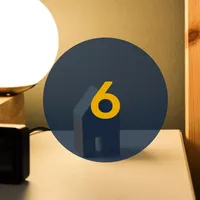Esta na Richard huwa wamechoka usiku.
This|and|Richard|is|are tired|at night
Ester und Richard sind nachts immer müde.
Jane and Fred are tired at night.
Ester y Richard siempre están cansados por la noche.
Ester en Richard zijn 's nachts altijd moe.
Wanakula chakula cha usiku kwa pamoja saa moja usiku.
They eat|food|of|night|together|at|hour|one|night
They eat dinner together at seven.
Cenan juntos a la una de la madrugada.
Huwa wanakula chakula cha usiku na mtoto wao wa kiume.
They usually|eat|food|of|night|and|child|their|of|male
Normalerweise essen sie mit ihrem Sohn zu Abend.
Their son eats dinner with them.
Suelen cenar con su hijo.
Ze eten meestal samen met hun zoon.
Wanapumzika na kutizama televisheni kwa pamoja.
They relax|and|watching|television|together|together
They relax and watch TV together.
Se relajan y ven la televisión juntos.
Mtoto wao wa kiume huwa anaangalia televisheni pia.
The child|their|of|male||watches|television|also
Their son watches TV, too.
Wanamlaza mtoto wao wa kiume kitandani saa mbili usiku.
They put to bed|child|their||male|in bed|at|two|at night
They put their son to bed at eight.
Acostaron a su hijo a las dos de la mañana.
Ils ont couché leur fils à deux heures du matin.
Esta anaoga maji ya moto.
She|bathes|water|of|hot
Esther nimmt ein heißes Bad.
Jane has a hot bath.
Esther prend un bain chaud.
Esther neemt een warm bad.
Richard huwa anaoga bomba la mvua na huwa anapiga mswaki meno yake.
Richard||baths|pipe|of|rain|and|usually|brushes|toothbrush|his teeth|his
Richard duscht und putzt sich die Zähne.
Fred has a shower and brushes his teeth.
Richard neemt een douche en poetst zijn tanden.
Esta huwa anasoma kitabu, lakini huwa analala.
Esta|usually|reads|book|but|usually|sleeps
Esther liest immer ein Buch, aber sie schläft immer.
Jane reads a book, but falls asleep.
Esther leest altijd een boek, maar slaapt altijd.
Richard pia huwa analala muda sio mrefu.
Richard|also||sleeps|time|not|long
Fred also falls asleep soon after.
Hii ni hadithi hiyo, ikisimuliwa na Esta.
This|is|story|that|told|by|Esta
Here is the same story told in a different way.
Richard na mimi huwa tumechoka usiku.
Richard|and|I||we are tired|at night
Fred and I are tired at night.
Tunakula chakula cha usiku kwa pamoja saa moja
We eat|food|of|night|together|at|one|o'clock
We eat dinner together at seven.
Mtoto wetu wa kiume hula chakula cha usiku na sisi.
The child|our|of|male|eats|food|of|night|and|us
Our son eats dinner with us.
Huwa tunapumzika na kutizama televisheni kwa pamoja.
We usually|relax|and|watching|television|together|together
We relax and watch TV together.
Mtoto wetu wa kiume huwa anaangalia televisheni pia.
The child|our|of|male|usually|watches|television|also
Our son watches TV, too.
Tunamlaza mtoto wetu wa kiume kitandani saa mbili.
We put him to bed|child|our|of|male|in bed|at|two
We put our son to bed at eight.
Ninaoga maji ya moto.
I bathe|water|of|hot
I have a hot bath.
Je prends une douche chaude.
Richard huwa anaoga bomba la mvua na huwa anapiga mswaki meno yake.
Richard||baths|pipe|of|rain|and|usually|brushes|toothbrush|his teeth|
Richard duscht und putzt sich die Zähne.
Fred has a shower and brushes his teeth.
Huwa ninasoma kitabu, lakini huwa ninalala.
usually|I read|book|||I sleep
I read a book, but fall asleep.
Richard pia huwa analala muda sio mrefu.
Richard|also||sleeps|time|not|long
Fred also falls asleep soon after.
Maswali.
Questions
Questions:
1) Richard na Esta wamechoka.
Richard|and|Esta|are tired
One: Fred and Jane are tired.
Je, Richard na Esta wamechoka?
question particle|Richard|and|Esta|are tired
Are Fred and Jane tired?
Ndiyo, wamechoka.
Yes|they are tired
Yes, they are tired.
2) Huwa wanakula chakula cha usiku saa moja.
They usually|eat|food|of|night|hour|one
Two: They eat dinner at seven.
Je, huwa wanakula chakula cha usiku saa kumi na mbili?
Do|||food|of|night|hour|ten|and|two
Do they eat dinner at six?
Hapana, huwa hawali chakula cha usiku saa kumi na mbili.
No||eat|food|of|night|hour|ten|and|two
No, they do not eat dinner at six.
Wanakula saa moja.
They eat|hour|one
They eat at seven.
3) Wana mtoto wa kiume.
They have|child|of|male
Three: They have a son.
Je, wana binti?
are|do they have|daughters
Do they have a daughter?
Hapana, hawana binti, lakini wana mtoto wa kiume.
No|they do not have|daughter|but|they have|child|of|male
No, they do not have a daughter, they have a son.
4) Mtoto wao wa kiume huwa anaangalia televisheni pamoja nao.
The child|their|of|male||watches|television|together|with them
Four: Their son watches TV with them.
Je, mtoto wao wa kiume huwa anatizama televisheni?
question particle|child|their|plural marker|male||watches|television
Does their son watch TV?
Ndiyo, mtoto wao wa kiume huwa anatizama televisheni nao.
Yes|child|their|male|son|usually|watches|television|with them
Yes, their son watches TV with them.
5) Huwa anaenda kitandani saa mbili.
He usually|goes|to bed|at|two
Five: He goes to bed at eight.
Je, mtoto wao wa kiume huwa anaenda kitandani saa tatu?
question particle|child|their|masculine|male||goes|to bed|hour|three
Does their son go to bed at nine?
Hapana, huwa anaenda kitandani saa mbili.
No|||to bed|at|two
No, he goes to bed at eight.
6) Esta huwa anaoga maji ya moto.
Esta|usually|bathes|water|of|hot
Six: Jane has a hot bath.
Je, Esta huwa anaoga kwenye bomba la mvua?
Do|Esta|||in|pipe|of|rain
Duschet Esther unter der Dusche?
Does Jane have a shower?
Hapana, huwa haogi kwenye bomba la mvua.
No||bathes|in|pipe|of|rain
No, Jane doesn't have a shower.
Huwa anaoga maji ya moto.
She has a hot bath.
7) Richard huwa anaoga bomba la mvua na kupiga mswaki meno yake.
Richard|usually|bathes|pipe|of|rain|and|brushes|toothbrush|his teeth|
Seven: Fred has a shower and brushes his teeth.
Je Richard huwa anapiga mswaki meno yake?
||||toothbrush|teeth|
Does Fred brush his teeth?
Ndiyo, Richard huwa anaoga bomba la mvua na kupiga mswaki meno yake.
Yes|Richard|||pipe|of|rain|and|brushes|toothbrush|his teeth|
Yes, Fred has a shower and brushes his teeth.
8) Esta huwa anasoma kitabu.
he|||book
Eight: Jane reads a book.
Je, Esta huwa anasoma kitabu?
Do|Esta||reads|book
Does Jane read a book?
Ndiyo, huwa anasoma kitabu.
Yes|usually|he/she reads|a book
Yes, he always reads a book.
Oui, il lit toujours un livre.

